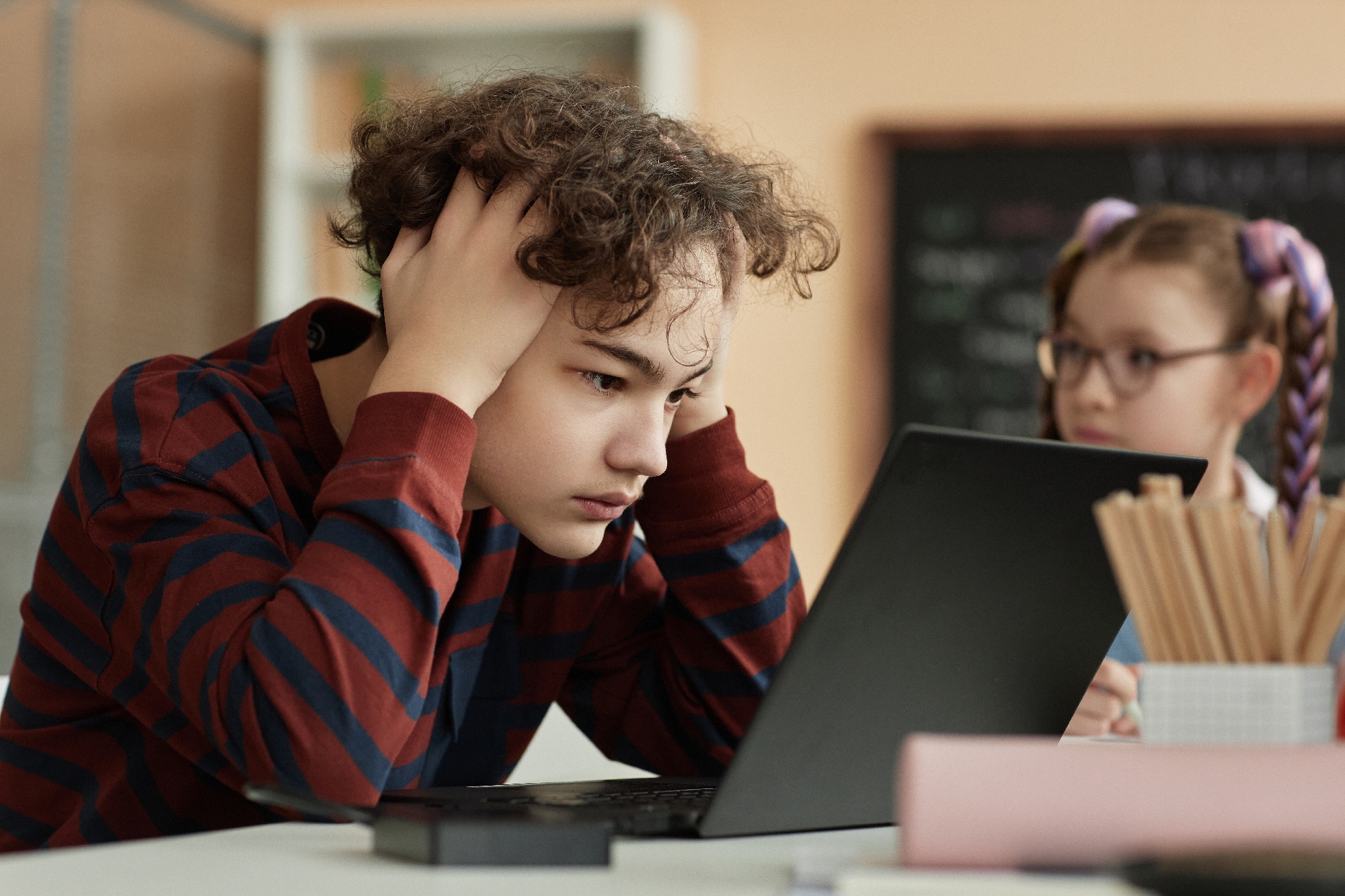Why Youth Have Trouble in School
Declining grades, disciplinary issues, lack of motivation, and other problems can leave you feeling frustrated and worried about your child’s future. However, it’s essential to understand that underlying issues often contribute to school difficulties that need to be addressed compassionately. By better understanding the potential reasons behind your teen’s troubles, you can work toward finding solutions.

Table Of Content
- Common Causes of School Struggles
- Potential Solutions and Supports
Common Causes of School Struggles
Mental Health Issues
It’s estimated that 1 in 5 teens have a diagnosable mental health disorder, such as depression, anxiety, ADHD, trauma/PTSD, or others. These conditions can negatively impact academic performance in many ways, from concentration troubles to low energy and motivation. If you notice sudden extreme changes in mood, behaviors, or personality, it may indicate an undiagnosed issue and talking to a mental health professional can help determine if treatment is needed. Getting the right support can help children better manage challenges.
Learning Differences
Learning disabilities like dyslexia or processing issues often go unidentified until adolescence when school demands increase. A teen may try to hide reading challenges or poor test performance, leading to declining grades. If you have suspicions, speak to your school counselor about having an evaluation done to pinpoint areas of difficulty. Identifying learning differences means specialized teaching help can be provided to help students reach potential.
Lack of Organizational Skills
Many capable teens struggle to keep up simply because of missing organizational abilities or time management skills. Difficulty tracking assignments, forgetting materials, procrastinating projects, and poor planning can torpedo school performance. Building structures like calendars, reminder systems, notebooks, and regular school bag organization can help overwhelmed students prioritize and meet deadlines. Start small, with consistent expectations around home study time, and build from there.
Too Much Pressure
Being a teenager is stressful, and school anxiety is immense today. High-pressure academic environments, over-scheduling extracurriculars, peer competition, sports commitments, college prep— it all adds up! Stress can quickly lead to burnout, mental health issues, acting out behaviors, and school avoidance. Talk to your teen about their unique stressors and work together to find healthy life balance and deal with academic expectations. Say no to obligations that fuel anxiety so your teen can focus their energies productively.
Bullying and Social Isolation
Bullying remains a huge issue facing teens, amplified by social media. Teens who experience bullying, violence, exclusion by peers, or even poverty can develop trauma symptoms leading to trouble functioning at school and low self-esteem. Look for withdrawn behavior, complaints about peers or school climate, or demands to change schools. Cultivate open communication to understand social challenges and partner with school counselors to address issues. Building peer connections in positive activities or community service may also help develop confidence.
Unstable Home Life
Chaotic homes with no structure, violent/toxic relationships between family members, transient living situations, and family stressors like divorce, addictions, lack of support, or abuse are all factors linked to poor student outcomes. Students need predictable routines, quiet study spaces, adequate sleep, proper nutrition, school supplies, transportation, and technology access in order to engage in academics. Work earnestly to establish stability and consistent support at home to help students thrive. Reach out for help—from extended family, community resources, or counseling—for yourself and your child.
Health Concerns
Certain medical conditions can greatly interfere with concentration, cognition, attendance, and learning. Asthma, diabetes, autoimmune disorders, obesity/eating disorders, sleep disturbances, seizures, and vision/hearing issues may all play a role. Discuss any health concerns with your child’s doctor and school nurse to build medical support and classroom accommodations when necessary. Be consistent with medications and care recommendations to help avoid flares or complications getting in the way of schooling.
Substance Use
It is not uncommon for struggling teens to develop issues with substances like alcohol, marijuana, vaping, or other drugs as a means of coping with life stressors. Unfortunately, substance use only serves to amplify problems in the long run. Declining academic performance, red flags like bloodshot eyes or behavior changes, new trouble-making friend groups, and secrecy can indicate developing issues. Communicate expectations for healthy behaviors, model good coping strategies yourself, and watch for signs and address concerns with counseling support if needed. Building resilience and life skills helps teens make good choices.
Potential Solutions and Supports
As you work to understand the root causes of your child’s school troubles, there are many positive supports to tap into, including:
Meeting with school counselors, teachers, and administrators to collaborate:
- Seeking counseling referrals from your pediatricians
- Talking with your child frequently and listening openly
- Working with tutors or learning specialists
- Exploring teen support groups and mentoring opportunities
- Looking into alternative programs/schools to find the right fit
- Developing better home structure around school responsibilities
- Focusing on positives and strengths while navigating challenges
With compassion and patient persistence, families can help teens get back on track developmentally as they learn to overcome obstacles and feel empowered to succeed on their terms. Stay centered on caring for your struggling student, connecting with resources as early as possible, and trusting that their challenges today will help them build skills for rising stronger in the future.
